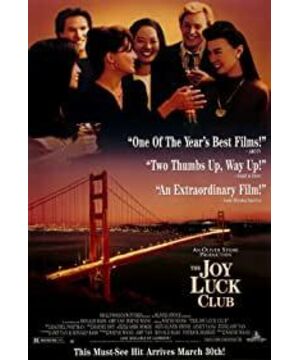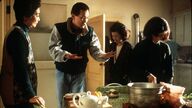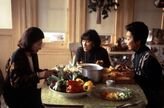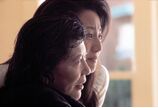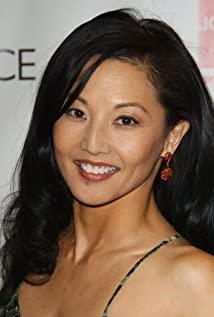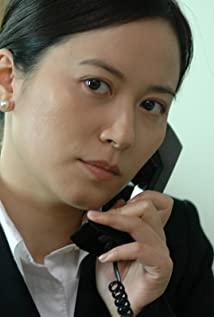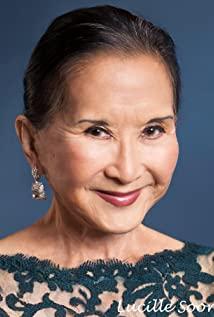The mothers all fled to the United States from China during WW2. The daughters are all born in the United States, ABC who can't even speak Chinese well. The first and fourth pairs are about the relationship between mother and daughter, and the second and third pairs are about marriage issues.
The problem with the first pair is that both mother and daughter are too strong. Mothers and daughters actually care about each other's opinions, but they are reluctant to show weakness and show their care. So there was a misunderstanding between them. The mother thinks that her daughter looks down on herself, and in revenge, the mother is always critical of her daughter (it is rare for a mother with such a strong self-esteem to be transformed into a vengeful spirit). Then, the daughter actually cares about what her mother thinks of her, but her self-esteem is also super strong. Although she is very sad, she never wants to show it in front of her mother. So, the mother and daughter fought for N years like this, until one day, the mother couldn't take it anymore and shed tears in front of her daughter, and the knot between the two sides was finally solved. This is a reflection of the fact that Chinese society is generally not good at expressing love for their children. For the fourth pair, the daughter always felt that her mother had high expectations of her, and whenever she fell short of her mother's expectations, she felt deeply frustrated. So the daughter refused to communicate with her mother, and even said that I didn't know her mother. As for the mother, because of the lack of communication with her daughter, she considers herself a faulty mother. Actually, I don't think I understand all of this. My mother said later that she had hope instead of expectation, and I don't really understand the difference between the two words here. In fact, the mother admires her ordinary and kind-hearted daughter, but why should she belittle her daughter in front of outsiders at the dinner table? Does this reflect the general dislike of encouraging children in Chinese society? Is the belittling of the daughter a kind of aggressive, self-effacing? I don't understand that the key is on HOPE. Is that goose feather related to HOPE? Or is it just a communication between mother and daughter. Well, maybe the real problem with the pair is misunderstanding due to lack of communication.
The problem with the second pair should be that the husband does not give his wife enough attention. At this time, the wife should not choose to endure it silently and swallow the bitter fruit, because the long-term accumulation of anger will damage women's own health and eventually lead women to make irrational decisions that harm others and themselves. A wife should dare to resist, dare to choose to leave her husband who does not love her, and pursue a new life. The problem of the third pair is that the wife should not keep silently and selflessly for her husband and for the family until she loses herself. The love between husband and wife should be equal.
Some people were dissatisfied with the storyline and thought it was suspected of vilifying China. Maybe it's because those mothers suffer so much in China, and America is described as a haven for them, a place to escape all suffering. Considering the background of the war at the time and how conservative China was at that time, I believe that the stories of those mothers may be true, but I think that after those women came to the United States, their lives should also be extremely difficult. Their class should belong to UPSCALE in China, but in the United States they are likely to belong to LOW Class, like cleaning for others, working in factories (see book). Their living environment is likely to be quite difficult and harsh, but the book does not focus on depicting it.
View more about The Joy Luck Club reviews


